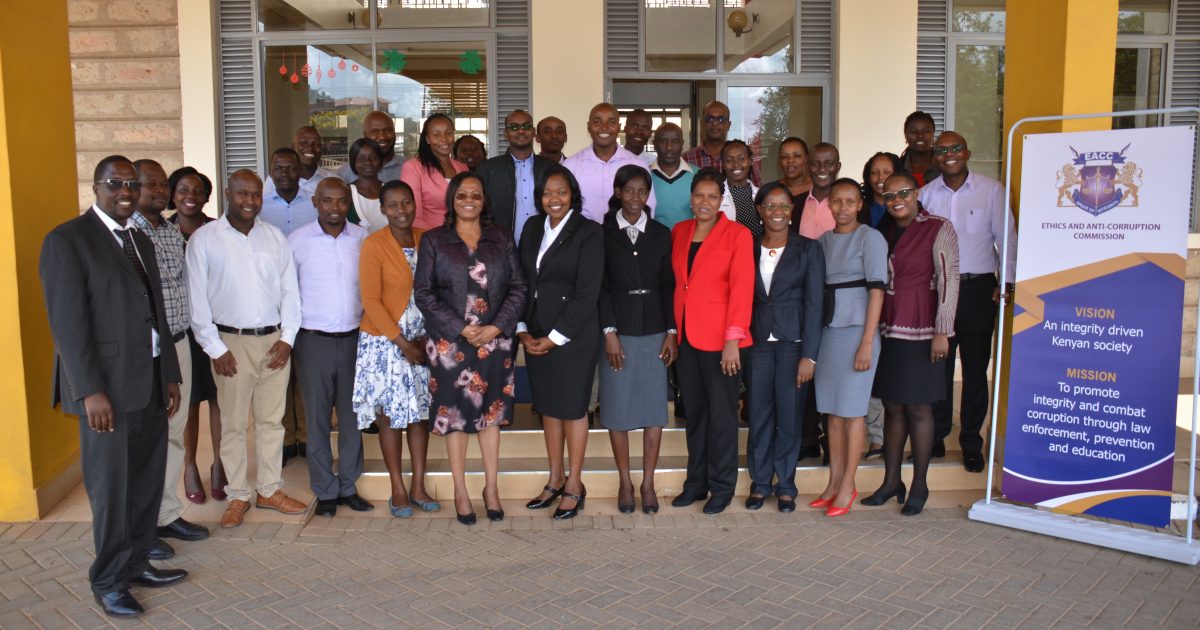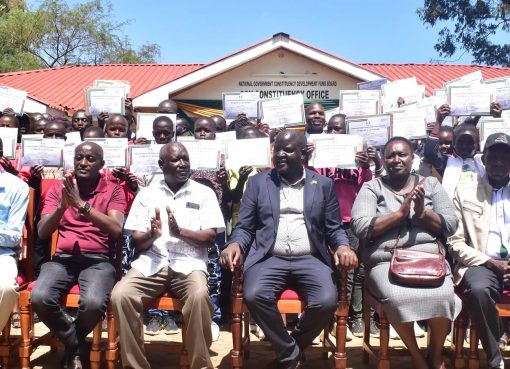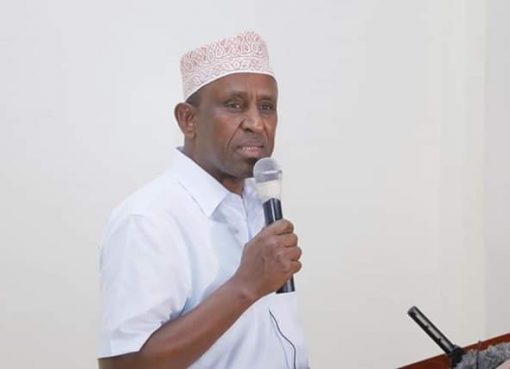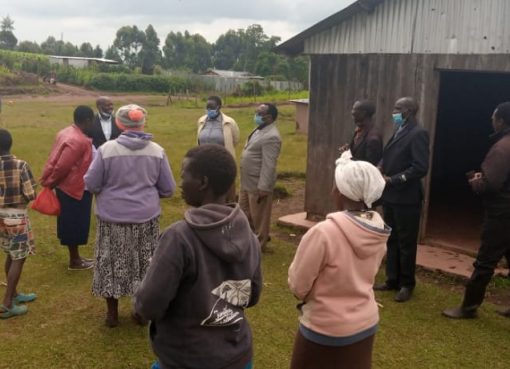

The Ethics and Anti-Corruption Commission (EACC) has tasked its officers to embrace to new technology in order to assist in improving service delivery and the fight against graft.
Speaking while officiating a one week training on Integrated Complaints Reporting Systems (ICRS) at Machakos University on Monday, the EACC Commissioner, Rose Mghoi Macharia said that technology is critical in providing solutions in the fight against corruption.
Macharia pointed that the training is being attended by 17 officers drawn from the various EACC regional offices, integrity centres and county Huduma centres.
“The officers’ role will be to ensure proper and consistent usage of ICRS in conduction of investigation by ensuring that correct data is regularly updated and utilized,” said Macharia.
“The current system which was started in 2006 and has been in use to date was used for collecting data but has not been satisfactory, hence the need for the new training. ICRS is an in house Information Communications Technology (ICT) that has impacted positively the management of commission, investigations and legal services data with timely updates.
The commissioner pointed that the modules ICRS can effectively manage all complaints, investigations, court data and ultimately generate reliable and timely statistics vital for decision making.
She said the graft body has committed to automate all its process with a view to improving efficiency in service delivery both internally and externally as outlined in its ICT Policy.
“EACC has different roles to conduct different investigations and also ensure that the civil servants working in the commission have the knowledge and skills to fight corruption in the new digital era where technology is one of the most effective ways of service delivery,” said Macharia.
She further acknowledged the role that technology has had in moving the world to a global village citing that it is necessary for the commission to adapt fast with the ever changing technology in order to ensure effective service delivery.
“As you may be aware, the world is undergoing the fourth industrial revolution where the utilization of data in a virtually connected world will determine how organizations possess a cutting edge in their sectors. In the near future, data driven investigations will be the way to go,” she said.
“Today the commission uses technology to assist in financial investigations, a move that has eased following of money trails. This is one of the reasons we want to harness our data competence further. We need to collect, store and utilize data to match our partners and overtake groupings that exploit the lack of information and data disconnect to go unnoticed whenever they commit an economic crime,” said Macharia.
The Commissioner cited running parallel systems with both gadgets and paper to record as one of the challenges that is causing the slow uptake of technology, saying she will come up with ways to reward the best people who will be able to convince the various staff in their respective work places to adopt new technology.
Macharia however, cited data security and complexities with new technologies to be one of the major reasons why it has been hard to cross over from manual to the new digital era.
Giving an example with M-pesa and how it was easy for all age groups to understand the transactions, she asked the report and data analysts to use easy language and stop using terminologies that could bring confusion and cause disinterest for the members of the general public to relate to.
On his part, the Machakos Regional Manager, Ben K. Murei asked the members present to learn, team build and explore Machakos tourism sites and be ready to embrace new technology.
According to the EACC website, the graft body has currently received 90, 000 reports, of which 40, 000 are under investigation.
The public assets recovered by the commission in the financial year 2018-2019 from cash, land or immovable properties amounted to around Sh.3.2 billion.
By Lydia Mutanu/Wanjala David/Rachael Kilonzo





